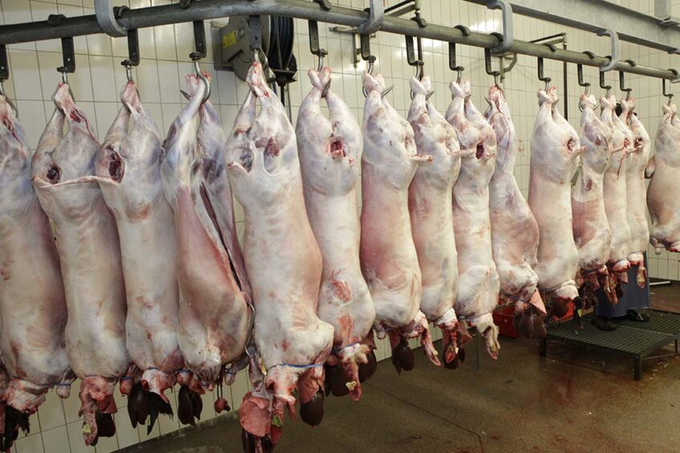May 18, 2025 | 22:22 GMT +7
May 18, 2025 | 22:22 GMT +7
Hotline: 0913.378.918
May 18, 2025 | 22:22 GMT +7
Hotline: 0913.378.918
This means the New Swine Inspection System (NSIS) will be upheld. However, testing of the system continues.

Foto: Henk Riswick
NSIS was established in late 2019 as a voluntary system that allows slaughter plant employees to be involved in pre- and post-slaughter sorting activities before federal inspection occurs. The system also affects processing line speeds.
7 groups, including the Center for Biological Diversity and Mercy for Animals challenged the final “rule” in the system. The groups alleged that under this initiative, he slaughter of most pigs in the country would take place at unlimited speeds “with very little federal oversight, posing serious risks to animal welfare, consumer health and safety, and the environment.”
However, the judge in the challenge case found that NSIS aligns with existing legislation, and that FSIS had previously addressed animal welfare concerns by responding to comments, providing reasonable explanations for decisions and addressing concerns related to training and humane handling.
When it was established in 2019, NSIS allowed slaughter plants to set line speeds based on each plant’s ability to maintain process control. About 2 years later, a court order in Minnesota put line speed limits in place, of 1,106 head per hour.
FSIS responded by inviting select plants to participate in trials where they could operate at an increased line speed, with independent analysis of the impact of these increased speeds on workers. These plants, located in various states, included Clemens Food Group, Quality Pork Processors and Tyson Fresh Meats.
However, the data were found to be insufficient to properly determine worker impact, and FSIS is commissioning a study that will independently generate “the necessary data for expert analysis.”
In late November, FSIS announced that trials at its chosen NSIS establishments will move forward for up to an additional 90 days while the study to collect data is being designed.
The National Pork Producers Council (NPPC) applauded this decision, saying: “Amidst a historically dire pork market, we thank agriculture secretary Vilsack for his actions to preserve harvest capacity, which provides market power to producers when selling hogs,” said NPPC president Scott Hays. “Without the extension, pork producers would incur additional losses of nearly $ 10/head in the 1st and 2nd quarters of 2024.”
“NPPC looks forward to continuing working with FSIS to make this programme permanent and increase NSIS adoption at additional packing plants.”
(PP)

(VAN) Fourth most important food crop in peril as Latin America and Caribbean suffer from slow-onset climate disaster.

(VAN) Shifting market dynamics and the noise around new legislation has propelled Trouw Nutrition’s research around early life nutrition in poultry. Today, it continues to be a key area of research.

(VAN) India is concerned about its food security and the livelihoods of its farmers if more US food imports are allowed.

(VAN) FAO's Director-General emphasises the need to work together to transform agrifood systems.

(VAN) Europe is facing its worst outbreak of foot-and-mouth since the start of the century.

(VAN) The central authorities, in early April, released a 10-year plan for rural vitalization.

(VAN) Viterra marked a significant milestone in its carbon measurement program in Argentina, called Ígaris, reaching 1 million soybean hectares measured.